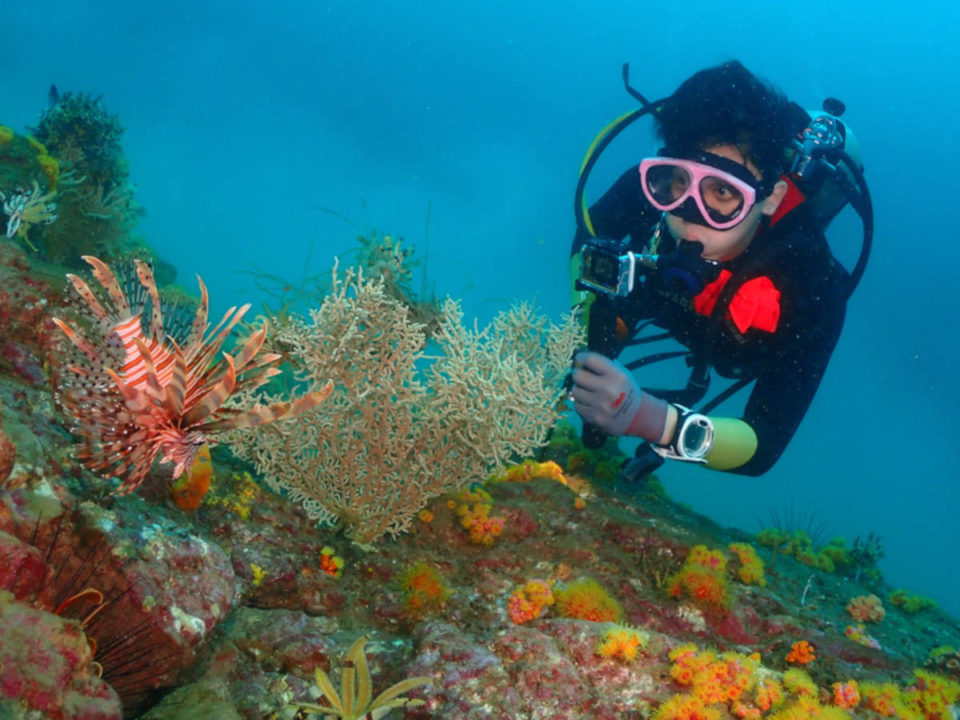Hong Kong and scuba diving might not exactly be synonymous, but you will be surprised by the beautiful dive spots you can find in Hong Kong! Delving into Hong Kong’s waters might not be as iconic as Philippines or Maldives, but you will find a number of interesting sights from great corals to aquatic life and even some mysterious shipwrecks! Read on to find out everything you need to know about scuba diving in Hong Kong.
What is scuba diving?
Many people are not aware that the term Scuba is actually an acronym, standing for Self-Contained Underwater Breathing Apparatus. It is a water sport where you are submerged underwater for extended periods of time, an excellent way to explore the beautiful sights of the sea. The key difference to other forms of diving, such as snorkelling or free diving, is that scuba divers carry a source of breathing gas that allows for greater mobility, deeper dives, and independence. This breathing gas is not pure oxygen, commonly containing a blend of oxygen, nitrogen, and helium. Scuba diving is usually done using a half mask, covering the diver’s eyes and nose, along with a mouthpiece to supply air. To dive in most places, you need to have trained and completed a certification, as discussed below.
Where can I scuba dive in Hong Kong?
As with a number of water sports, most of the key spots in Hong Kong to dive are located in and around Sai Kung.
Hoi Ha Wan Marine Park
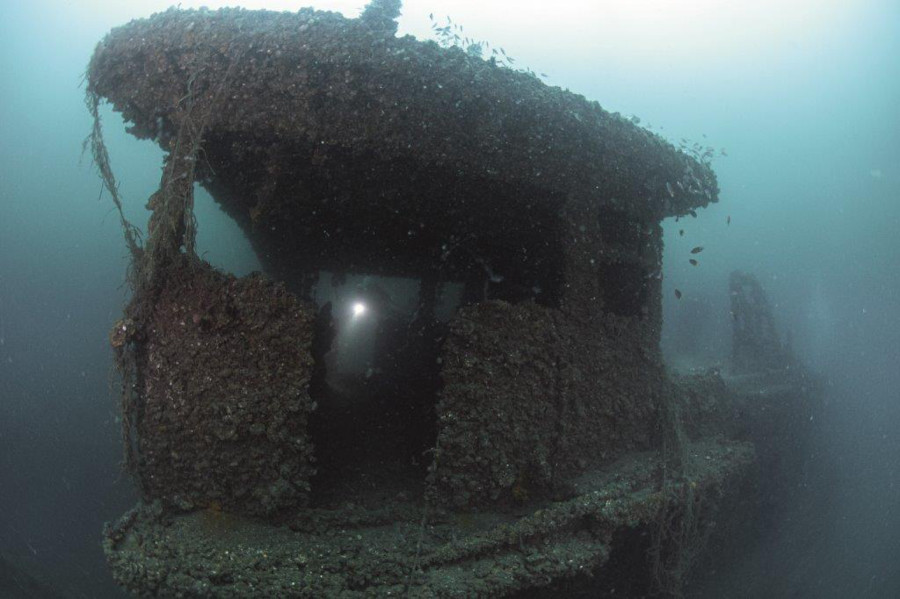
Since 1996, this has been designated as a marine park and is considered by many as one the best areas in Hong Kong for water sports due to its great water quality and diverse marine life. Along with coral, fish, seahorses and a variety of other aquatic life, you can find shipwrecks to discover! These fishing vessels were purposely sunk to prevent fishermen from bottom trawling and to create a habitat for corals and fish.
Yin Tsz Ngam
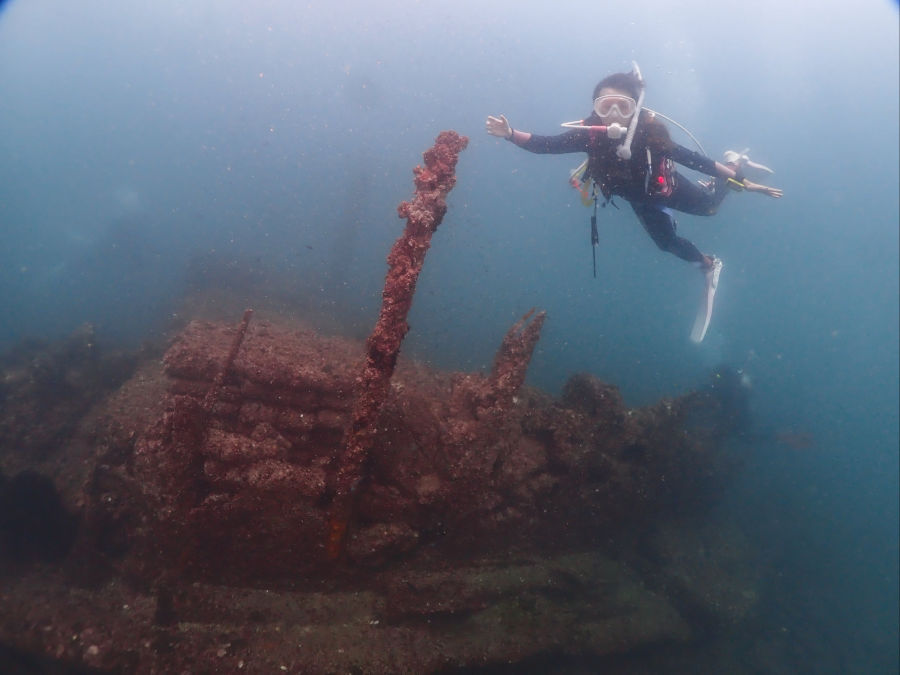
Translating literally to ‘swallow cave‘, known for the sea caves where bats and swallows make their nests, experienced divers can uncover some underwater history in Yin Tsz Ngam. Approximately 8 meters down, beneath the (rather strong) waves, there is a cargo ship that sank in the 60s due to an accident. You will find marinelife that has made a home in and around the shipwreck.
Mirs Bay
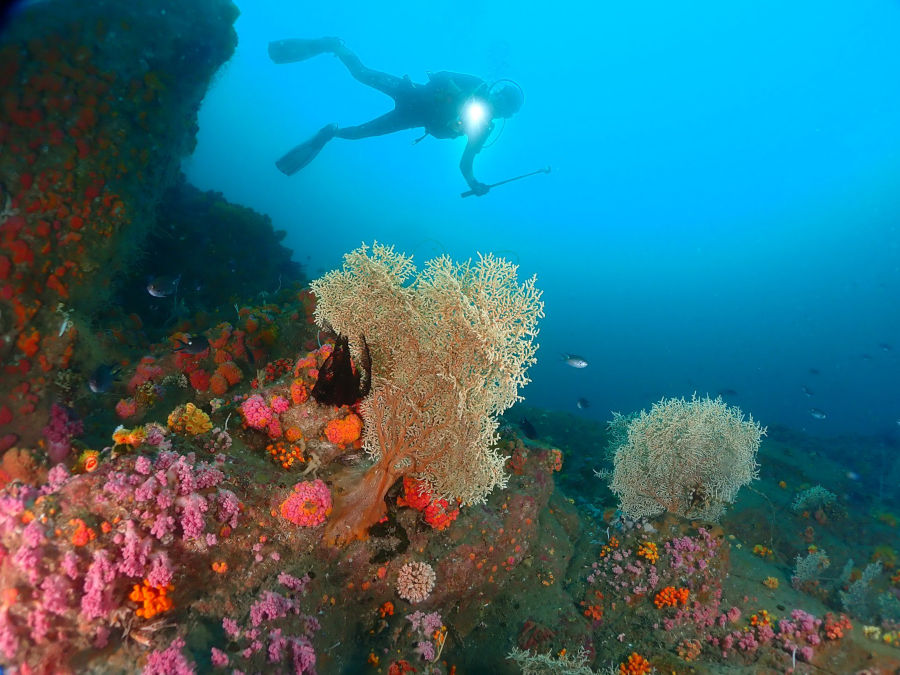
Another option is to to catch a ferry to Tung Ping Chau island in Mirs Bay, to discover some hidden dive sites. Called Tai Pang Wan in Chinese, is known for hard and soft coral growths and if you’re lucky, you might also spot some turtles and anemone fish! There is also usually a current, making this is a great spot for drift dives. Also close by and accessible from Sai Kung is Port Shelter, known for its rocky bottom with patches of hard corals.
Bluff Island
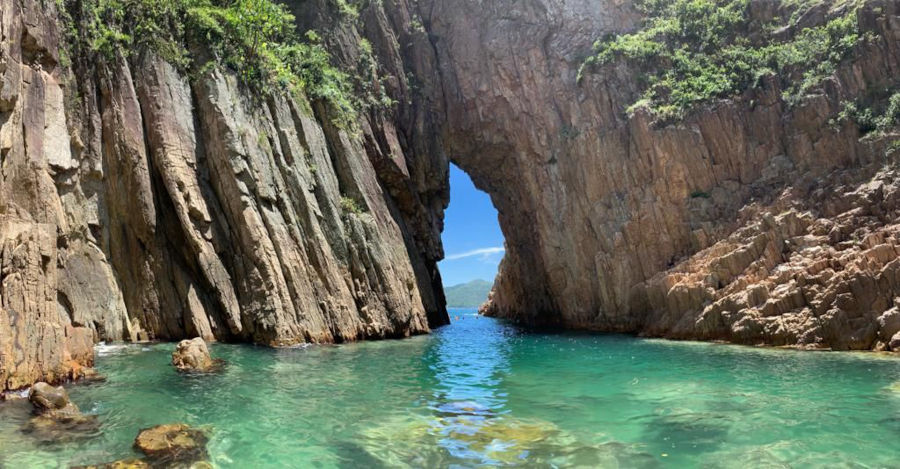
Also just a short bus ride from Sai Kung is a truly unique dive site. You will find an aged carwreck, believed to have been dumped ages ago by smugglers – what a cool find! Also known as Ung Kong Chau, this is a great site for beginners as well as experienced divers.
Little Palm Beach
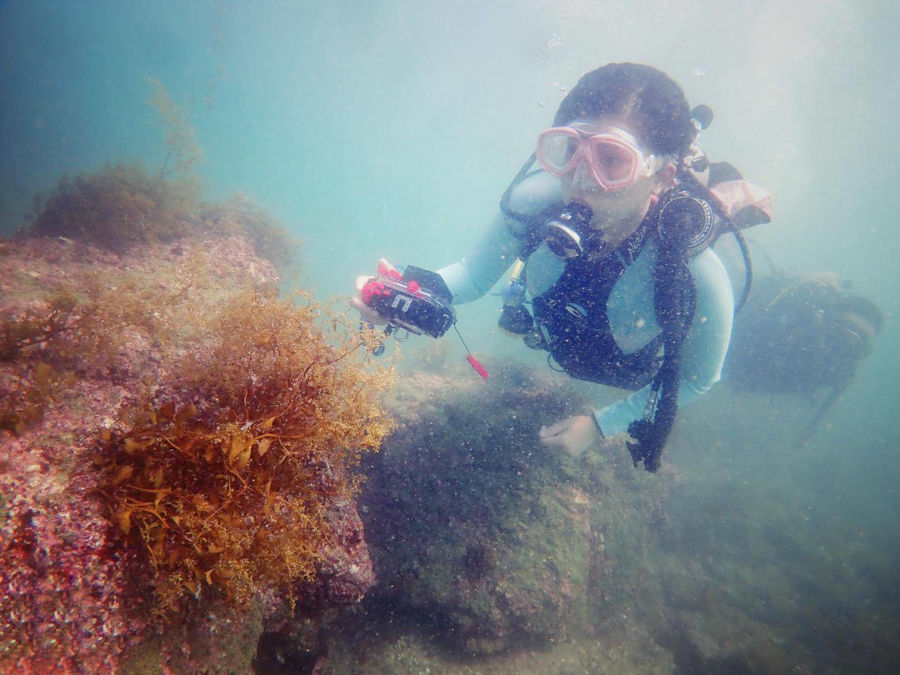
Another option for divers across experience levels is just an hour away from Central, in Clear Water Bay. It is known for the relatively calm currents as well as both shallow and deep waterway entries. Little Palm Beach is home to a plethora of sea life including corals, sea anemones, butterfly fish, clown fish, pufferfish, stonefish, crabs, cuttlefish, rays, squids, sea urchins and gobies. And if you’re looking for a bit of adventure, this is also a great spot for a night dive!
Tung Ping Chau
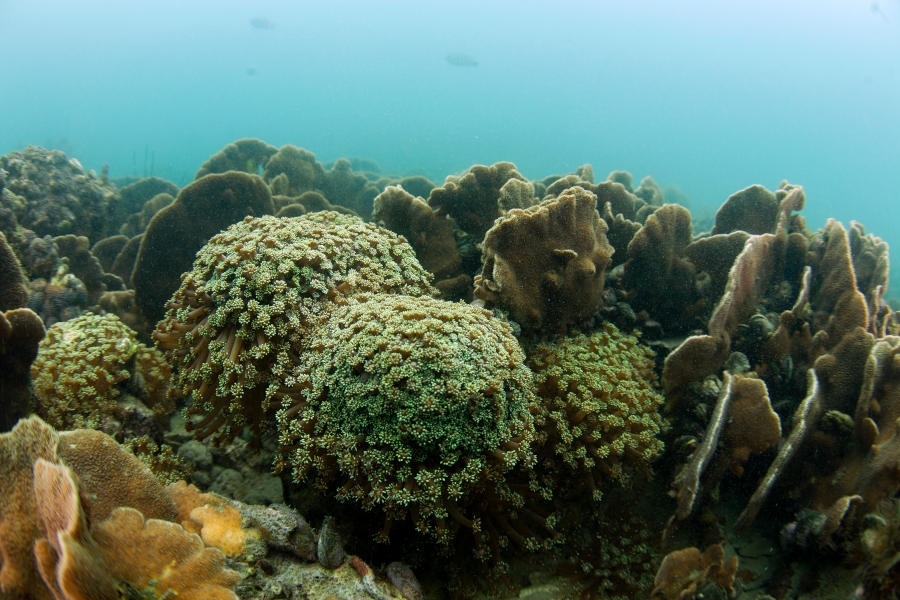
Finally, out in Tai Po, a bit of a trek from the city, you will find one of the Hong Kong Coastal Parks with its protected waters, and thus you can see a number of beautiful coral reefs. With the crystal clear waters in Tung Ping Chau, you should be able to spot staghorn corals, porgies fish, stonefish and even lobsters.
Where can I learn scuba diving in Hong Kong?
There are a number of programs in Hong Kong that offer the basic scuba diving certification. They all offer the basic Open Water Diver Course consisting of 5 confined water lessons (in a swimming pool) and 4 open water dives required to gain the Open Water Diver certification.
Splash Hong Kong, Sai Kung
Started in 2001, Splash Hong Kong is a PADI 5 Star Instructor Development Centre. They offer a number of courses from Bubble Maker for tinies to Open Water Scuba Instructor and beyond for divers turning their hobby into their profession. Their basic Open Water Diver Course costs HK$5,400.
Pro Diver Development, Sheung Wan
Pro Diver Development conduct scuba diving and CPR & First Aid training from beginner levels to professional levels with PADI and PSAI systems of dive education. With their pool sessions conducted in Pok Fu Lam, and open water dives in Sai Kung, this is super convenient for those looking to learn close to Central. The Open Water Diver Course starts at HK$4,500 and has options for private courses and online learning options.
Diving Express, Tsim Sha Tsui
A one-stop dive centre, classified as a PADI Five Star Instructor Development Centre, Diving Express can meet all your diving needs. They have training pool facilities across Mong Kok, Hung Hom and Tsuen Kwan O, perfect for those on Kowloon side. With training in English, Mandarin and Cantonese, the course fee for Open Water Diver Course starts at HK$4,200.
Scuba Monster, Tsim Sha Tsui
Primarily an underwater photography education and equipment specialist store, Scuba Monster also offer SSI diving training courses for a number of levels. The requirements are similar to the PADI training, and the course fee begins at HK$4,500.
FAQ about scuba diving
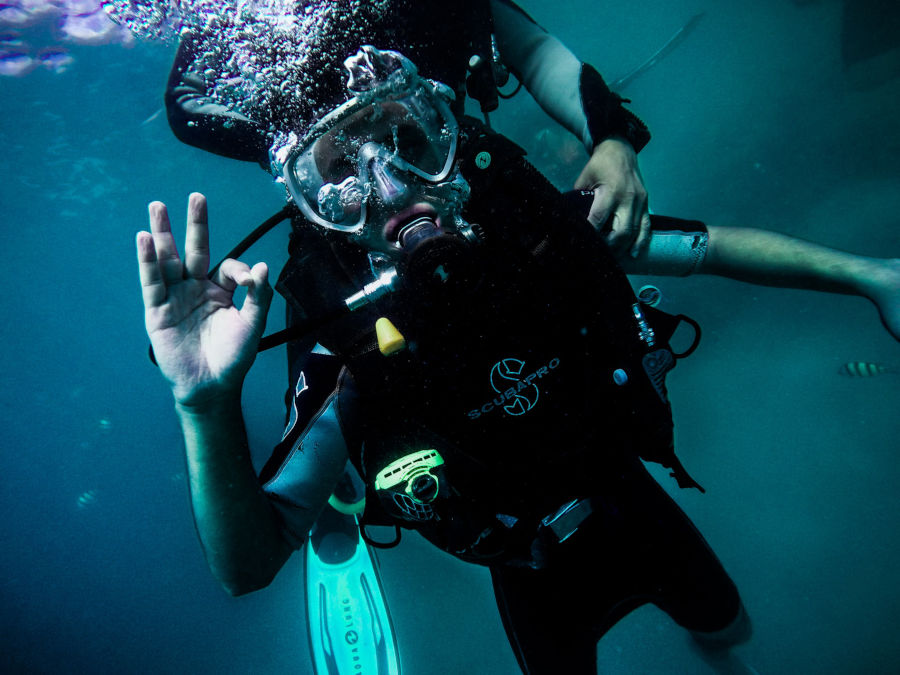
When is the best time to scuba dive?
In Hong Kong, late summer to early autumn and late winter to early summer are the best times to dive, when the water is still a comfortable temperature and winds are conducive to diving. Avoid diving from July to September as algae and winds can impact visibility.
Can a non-certified diver scuba dive?
Most scuba diving requires a minimal Open Water Diver certification. It is a risky water sport with a number of safety precautions and techniques to learn, so it’s best to complete the certification and avoid diving without professional guidance. However, there are some easy, instructor-led dives that can be attended by non-certified divers.
Is it safe to scuba dive during pregnancy?
While there isn’t conclusive research to suggest either way, doctors advise to err on the side of caution. One of the key potential dangers is nitrogen dissolution and its theoretical risks for fetal injury. If a mother is injured during a dive, or suffers from decompression illness or carbon monoxide poisoning, the baby is at risk.
What’s the minimum age to scuba dive?
The minimum age to complete the Open Water Diver Course is 10 years old, although some divers recommend kids be at least 12 before attempting scuba diving. For instructor-led dives, kids must be at least 8 years of age.
Header image credits: Diving Adventure Hong Kong


